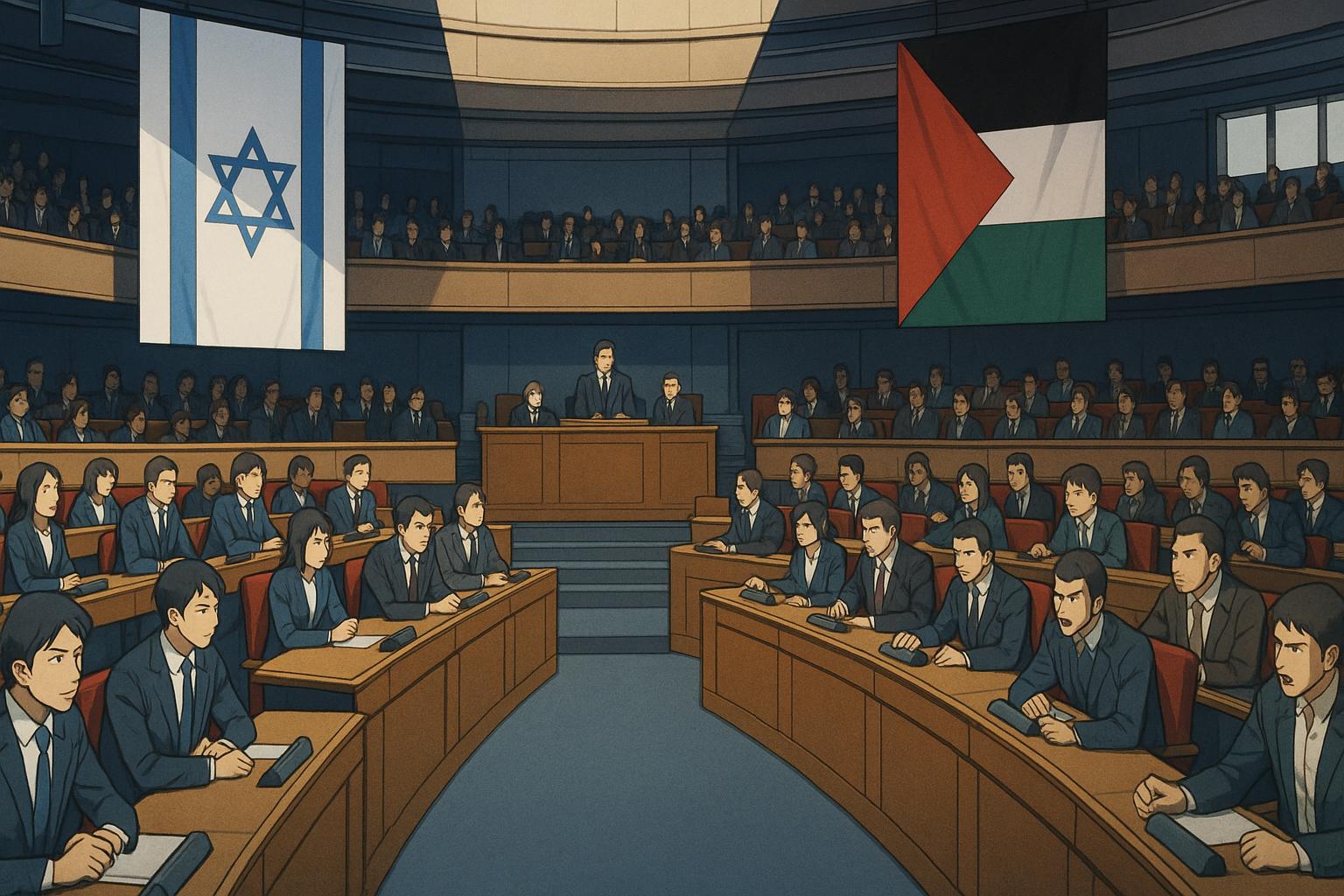The British newspaper The Telegraph has reported a notable decline in support for Israel from European nations, a shift attributed to Israeli Prime Minister Benjamin Netanyahu's military tactics in the Gaza Strip. The article highlights criticisms of these tactics, particularly Operation "Gideon's Chariot," which aims to expand Israeli territorial claims by displacing populations within Gaza. As this operation coincides with a complete blockade of the region, widespread outrage has erupted among European leaders, triggering calls for a ban on arms exports to Israel from countries that have traditionally held strong pro-Israel stances.
A significant moment in this evolving narrative came from German Chancellor Friedrich Merz, whose recent remarks indicated that the Israeli military strikes are “no longer understandable or justified.” This marks a dramatic pivot for Germany, a country previously uncompromising in its support for Israeli military actions, especially given its status as Israel's second-largest arms supplier after the United States. Merz’s statements reflect mounting pressure within his coalition, as many leaders express a desire to distance themselves from potential complicity in what international observers are calling war crimes. In response, Israeli officials have fiercely condemned this criticism, with Foreign Minister Gideon Sa’ar warning that any halt in arms shipments could lead to catastrophic outcomes for Israel.
The humanitarian implications of the conflict are alarming. The ongoing operations have resulted in a devastating humanitarian crisis, with reports currently indicating that over 50,000 Palestinian civilians have perished due to the violence, and essential infrastructure has been ravaged. Critics argue that the continued blockade, which includes restrictions on food and medical supplies, is both morally and legally indefensible. Prominent Israeli figures, including former Prime Ministers Ehud Barak and Ehud Olmert, have voiced their discontent over the government's aggressive tactics. This domestic dissent is juxtaposed against Netanyahu's steadfast position, as he accuses European nations of misalignment with historical truths.
European Commission President Ursula von der Leyen has also come under scrutiny for her previous support of Israel, which now seems at odds with the humanitarian crisis unfolding in Gaza. Following her comments condemning the violence as a “terrible escalation,” there is growing sentiment among EU leaders for a reevaluation of their trade relations with Israel. An initiative, prompted by the Netherlands, has garnered support from 17 of the 27 EU member states. This development signals a potential shift toward imposing a broader arms embargo and reconsidering diplomatic ties with Israel.
Spain and Ireland have emerged as key players in these efforts, leading calls to officially recognise a Palestinian state. The recognition, which both nations pursued after previously being accused of antisemitism, reflects a broader shift in European diplomacy towards the Israeli-Palestinian conflict. Irish Prime Minister Michael Martin has articulated a viewpoint that strongly criticises the Netanyahu government’s policies, describing them as genocidal. His government is pushing for EU-wide support to halt the import of products from Israeli settlements, further aligning with the rising tide of criticism from within Europe.
France has also repositioned itself, joining the push for recognition of Palestinian statehood after previously assuring Israel that such a move would not be considered. Observers warn that an upcoming international conference in Paris could further shift European recognition towards Palestine, presenting Israel with a significant diplomatic challenge. This evolving landscape brings to light the complex interplay of geopolitical interests, humanitarian concerns, and domestic pressures faced by European governments as they reassess their long-standing alliances.
While Netanyahu continues to assert that European nations are on "the wrong side of history," the current atmosphere hints at profound shifts within Europe. As resentment grows over Israel’s military operations and humanitarian crises, it remains unclear how strong this shift in opinion might become, or what tangible actions will follow. The historical and moral implications are significant, as European nations grapple with their responses to an unfolding tragedy in Gaza that has captured global attention and sparked renewed calls for justice and accountability.
Reference Map:
- Paragraph 1 – [1], [2]
- Paragraph 2 – [1], [6]
- Paragraph 3 – [5], [4]
- Paragraph 4 – [3], [4]
- Paragraph 5 – [1], [5]
- Paragraph 6 – [7], [1]
- Paragraph 7 – [2], [5]
Source: Noah Wire Services
